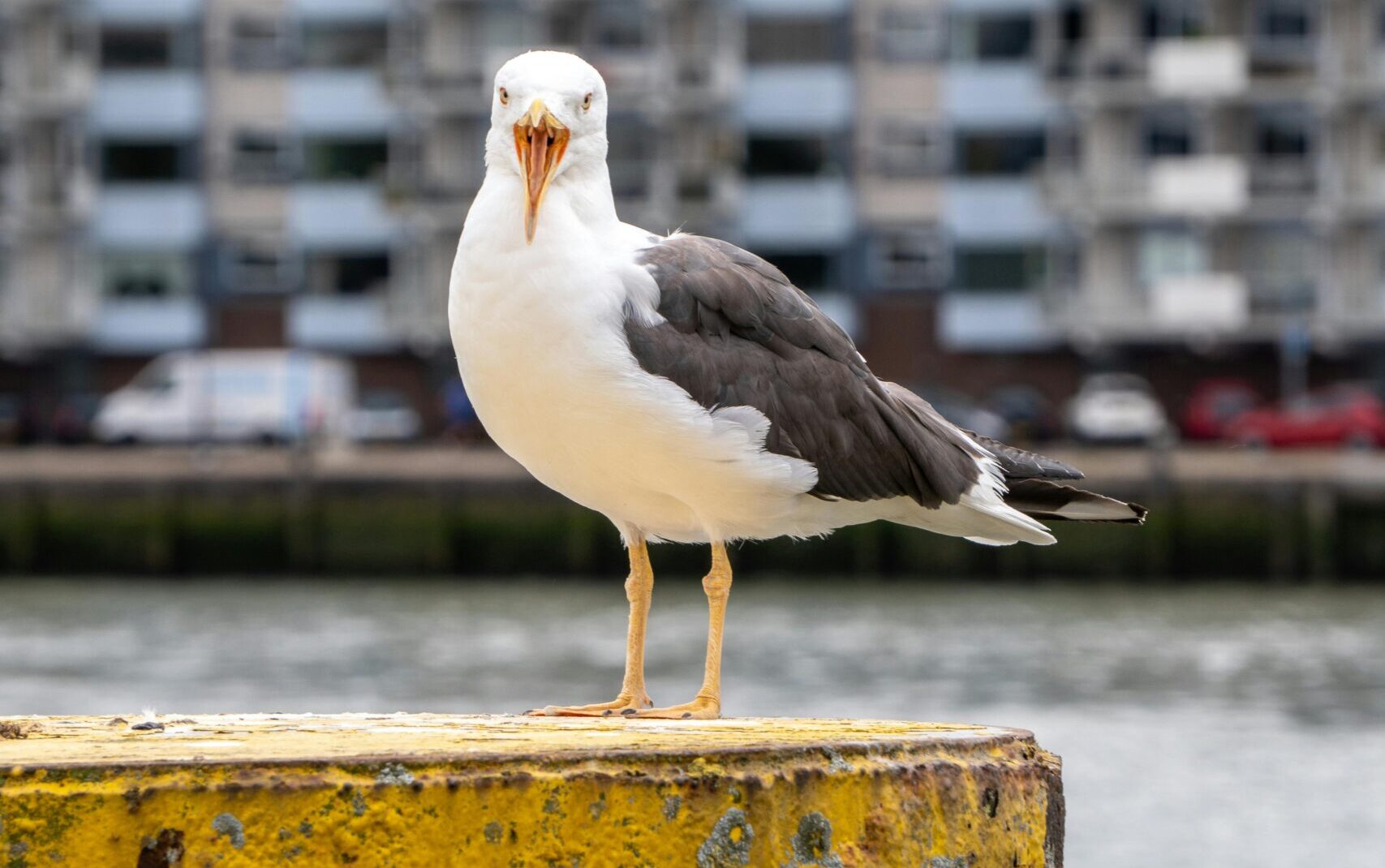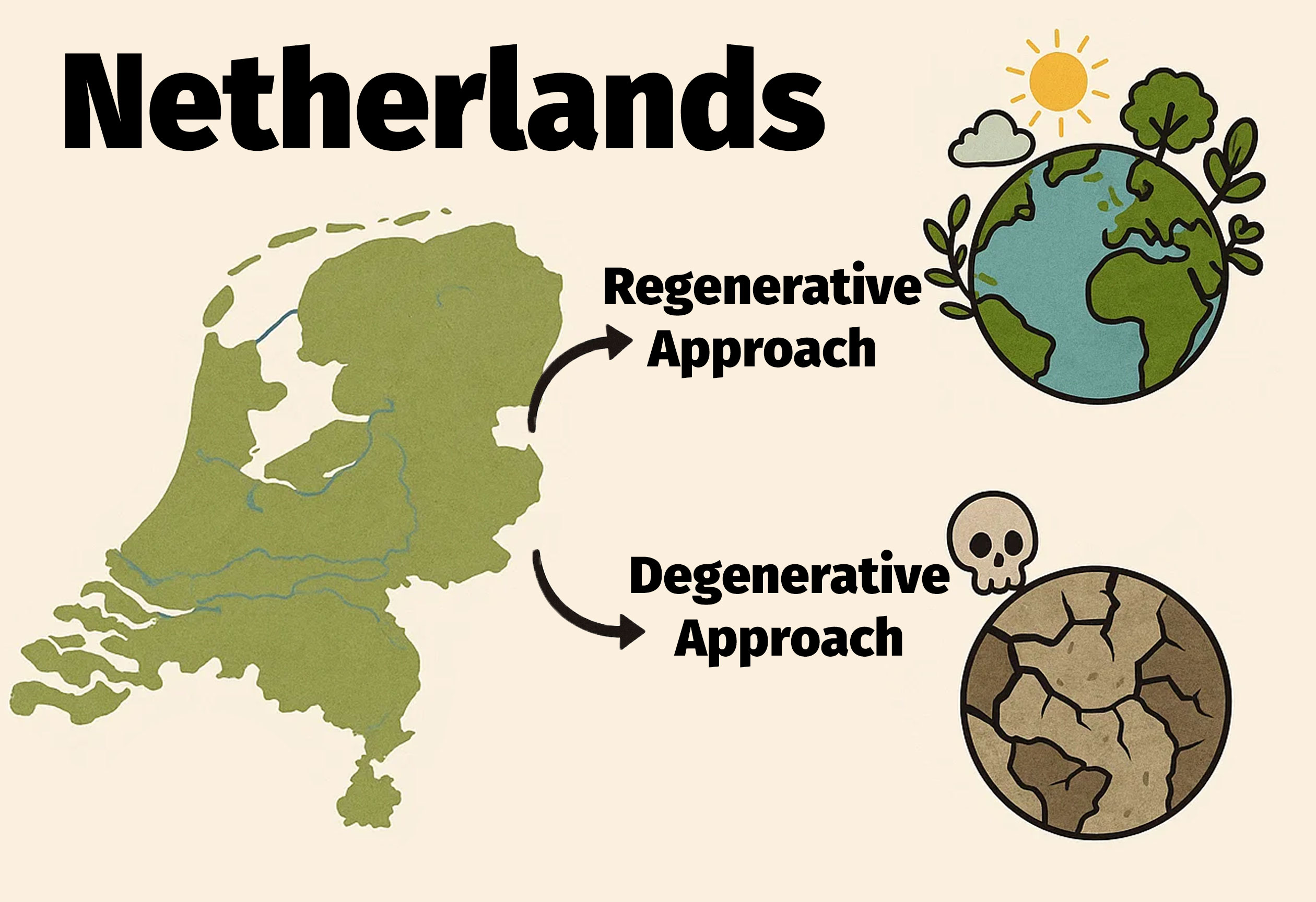Our Mission: To keep the Port of Rotterdam's pollution within safe limits.
We’re here to make sure the Port of Rotterdam reduces its pollution and emissions to safe limits, for our communities, our climate, and our future. Port activity, including operations by companies that lease space in the port, affects our air, our water, our soil, and our health, and we cannot allow the port to keep degrading the planet we all depend on.
Global maritime shipping is the backbone of today’s economy, moving products and resources across the world. But ports are more than just points of transit: they’re gatekeepers of material flows. What passes through a port shapes what a country consumes, produces, and allows, and what it chooses to keep out. This makes ports a central mechanism for grounding and sustaining a just transition, the shift from a polluting, extractive economy to a sustainable and regenerative one, carried out in a way that’s fair to workers, communities, and the environment. It ensures that the shift to a greener future doesn’t leave behind the people who depend on today’s industries, especially in sectors like fossil fuels, heavy industry, and logistics (like ports).
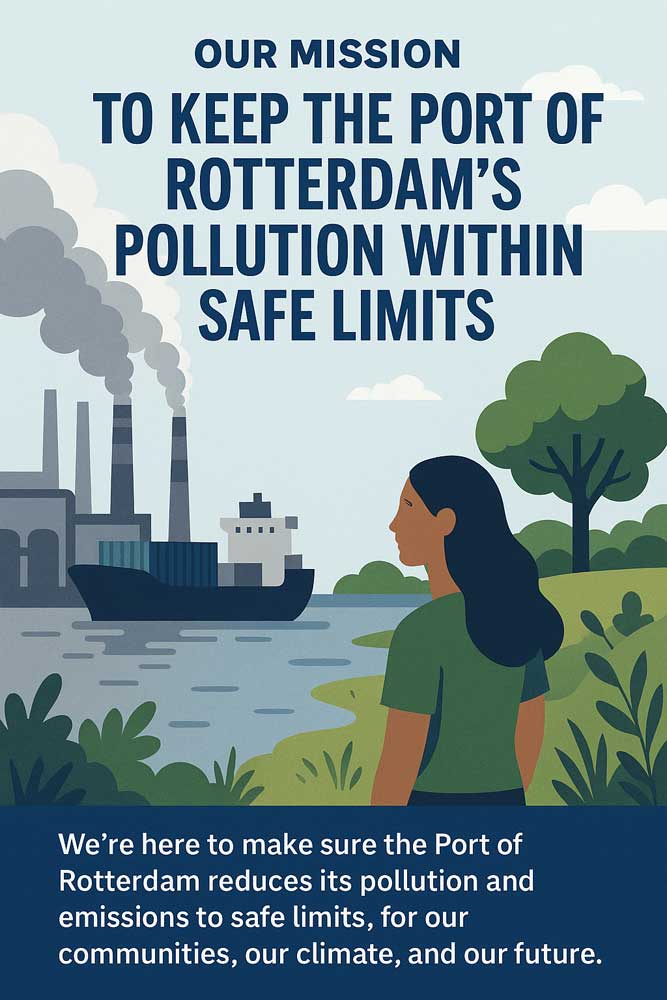
Source: One Planet Port’s Mission Poster for the Port of Rotterdam.
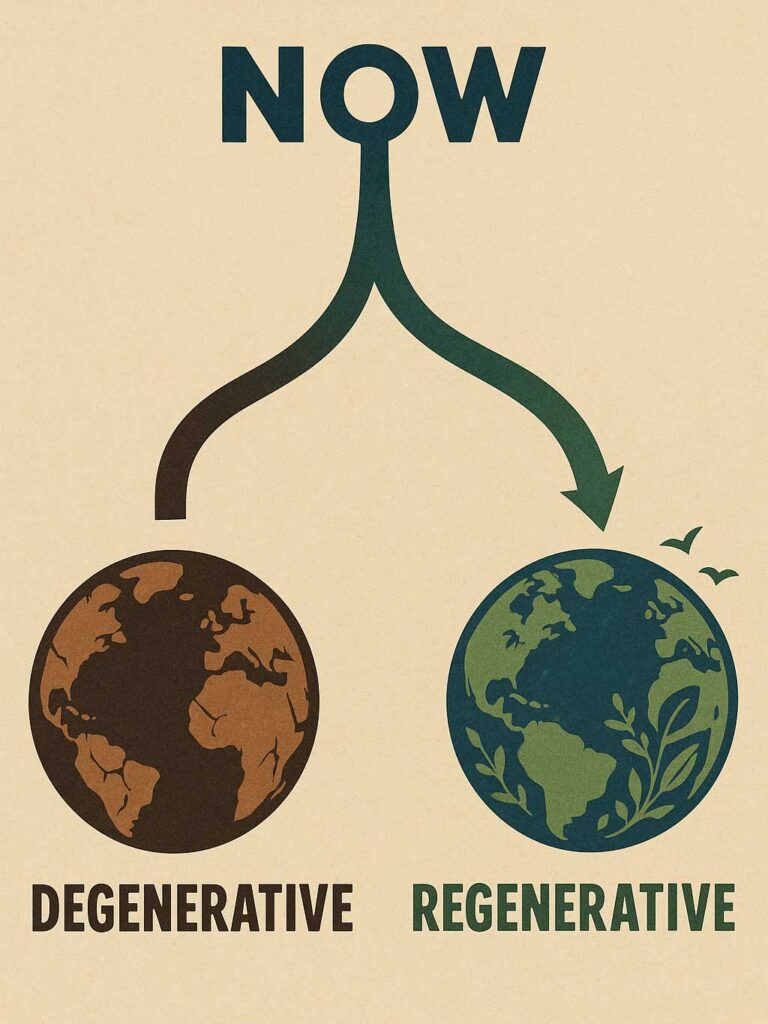
Source: Two Possible Pathways Poster.
That’s why One Planet Port works with local people, port workers, and leaders to build a cleaner, fairer Port of Rotterdam, through pollution monitoring, community cohesion building, and co-collaboration with communities, industry, academia, and policymakers to create practical transition plans. We take a systems perspective, recognizing that real change must connect environmental limits with economic needs, social justice, and democratic participation. We focus on the parts of the port economy we truly need, like clean energy and clean transport, and care work, while phasing out port activities that pollute, waste resources, or serve no real public good.
A healthy planet and a strong, fair economy must go hand in hand, an economy that recognizes we live within a closed system, where natural resources are limited. To thrive, we must prioritize essential activities that support well-being, including creating good jobs in, and restrict those that cause harm or serve no true necessity.
Port of Rotterdam: As Europe’s largest and most innovative port, and one that is publicly owned, the Port of Rotterdam is uniquely positioned to lead. If we can transform this port into a model of environmental responsibility, health, and justice, it can serve as a blueprint for the global transition maritime shipping and ports must undergo. Together, we can redefine what it means for ports to operate within the Earth’s capacity to regenerate, via a One Planet Port, with a thriving planet at the core.
Our Staff
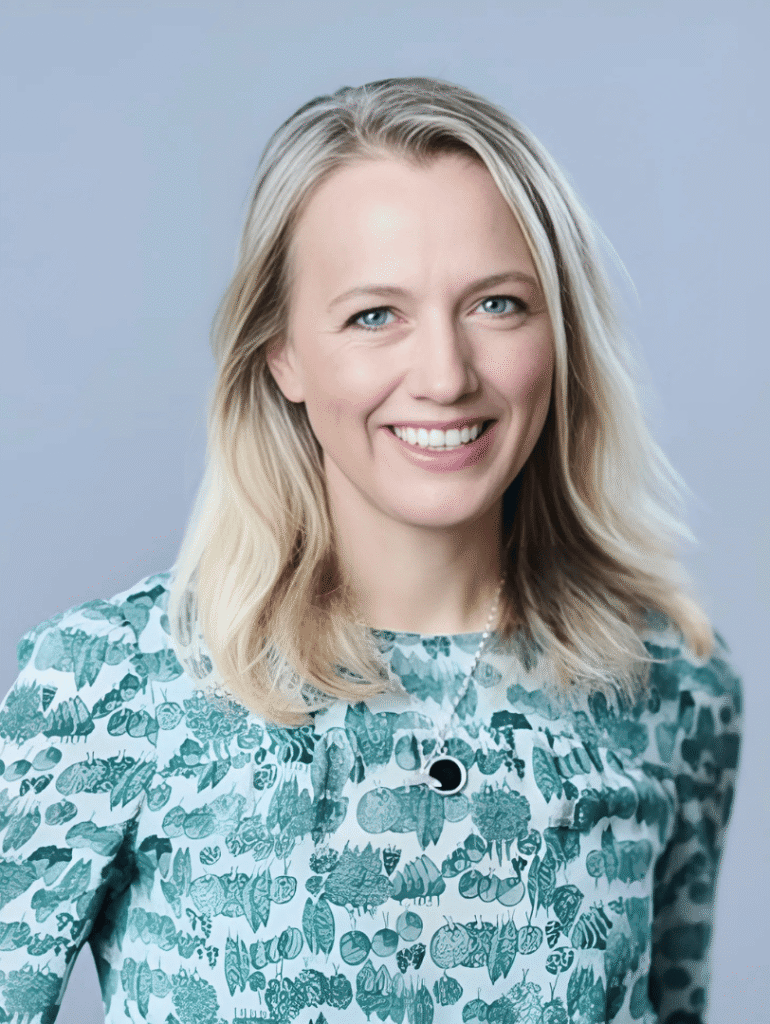
Dr. Lucy Gilliam
Co-executive Director, STEM Scientist, Founder
“I co-founded One Planet Port because solving our environmental challenges demands deep, systemic change. Ports are vital hubs where people, materials, energy, and ideas intersect—touching nearly every part of society. By driving sustainability in ports, we can create a tipping point that transforms the entire global economy. I’m committed to building a movement that turns vision into action, putting societal and planetary well-being at the core of our future.”
Lucy dives deep into environmental science and policy, propelling the development of science-based policies and impactful campaigns for OPP. As a visionary scientist, she pioneers innovative solutions that promote sustainable environmental practices and inspire transformative change. She specializes in international transport, ocean governance, and ecosystem-based management, particularly in the shipping and maritime port sectors. Over the past seven years, Lucy has shaped EU and IMO shipping policies and campaigns with Brussels-based environmental organizations
Transport & Environment and Seas at Risk. She actively participates in international UN meetings, engages with regional policy frameworks, and contributes to consultations across the EU.
Tanner Tuttle, MSc
Co-executive Director & Environmental Psychologist
Tanner Tuttle specializes in environmental psychology and is dedicated to bridging the gap between academic knowledge and real-world application to drive meaningful, systemic change. At One Planet Port, Tanner applies his expertise as a certified Agile change agent, using SCRUM and Lean management to align strategic planning with day-to-day operations and long-term organizational development.
His approach is grounded in systems thinking, regenerative sustainability, and emotionally resonant communication. Prior to his work in the environmental field, Tanner worked in the television and film industry, including for MTv, on the Paramount Pictures studio lot in Hollywood, and for the Walt Disney Company, where he focused on telling gripping and emotionally powerful stories.
Today, he brings that same narrative craft to the climate movement, using story not just to move the spirit, but to inspire real-world action.
Previously, Tanner led the New Fuels for Clean Shipping study under the Resilient Delta Initiative, a joint effort with Delft University of Technology and Erasmus University Rotterdam that explored the risks and opportunities of ammonia as a maritime fuel for the Port of Rotterdam through the lens of the Earth’s environmental boundaries and justice concerns.
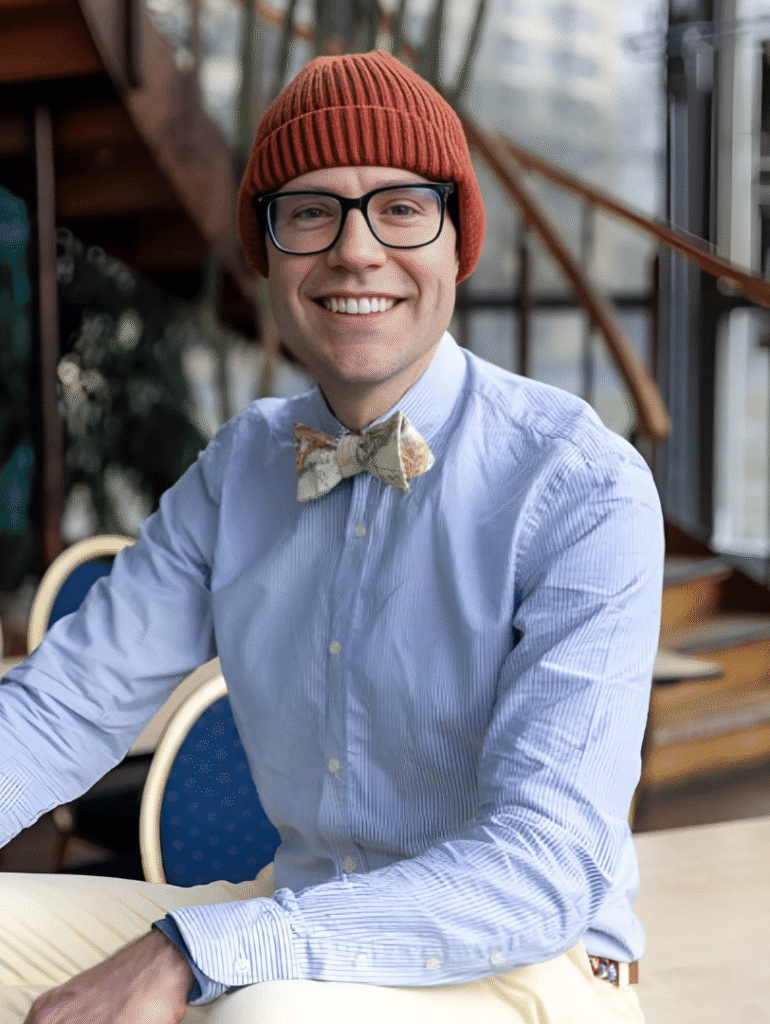
Join the Newsletter
Subscribe to our newsletter to receive periodic updates on our initiatives, including invitations to upcoming events, progress on our key projects, and notifications about newly published reports and insights. Be part of our journey toward a sustainable and zero-pollution Port of Rotterdam.
ANBI / Charitable Status
Name of the institution: Stichting One Planet Port
RSIN: 866257056
Postal address: Maasboulevard 100, 3063 NS Rotterdam, Netherlands
Objective:One Planet Port aims to create a clear vision and roadmap for transforming the Port of Rotterdam into a zero-pollution port that operates within ecological limits. We work to align environmental safety with economic resilience, social justice, and democratic collaboration.
Main points of the policy plan:
(a) Stop fossil fuel build out and support the scale up of renewables
(b) Create mandatory zero pollution pathways for shipping and ports
(c) Build circular economic activity and trading relationships
Remuneration policy of raad van toezicht: unpaid volunteers
Report on the activities carried out: Will be posted at the close of year one in August 2025.
Financial accountability: One Planet Port utilizes accounting firm Maas Accountants to ensure the utilization of robust accounting practices. Additionally OPP practices transparent reporting via providing an annual financial report to its funders while also maintaining organized records to fully comply with audits. Additionally, our ANBI plan will be published on our website annually.
